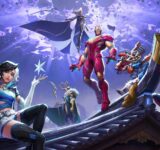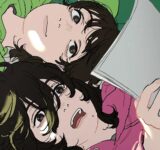There’s something magical about stories that transcend the medium they’re told in—something that lingers, pulls you back into the memory of what you’ve seen, and lets you dwell in its aftershocks. Look Back, the 53-minute anime film adapted from Tatsuki Fujimoto’s poignant one-shot manga, feels exactly like that kind of story. Directed by Kiyotaka Oshiyama and produced by Studio Durian, it’s a film that doesn’t waste a second, crafting an emotional journey so potent it feels both achingly brief and entirely immersive.
The story begins with Ayumu Fujino, a confident and ambitious middle school artist, reveling in the small fame she’s earned as her school’s go-to comic creator. She thrives on praise and relishes her identity as the best artist in her grade, at least until her status is threatened by Kyomoto, an agoraphobic classmate whose stunningly detailed drawings cast Fujino’s work into shadow. This initial rivalry pushes Fujino into overdrive, a rush of competitive energy that leads her to improve her craft—but also opens the door to something deeper.
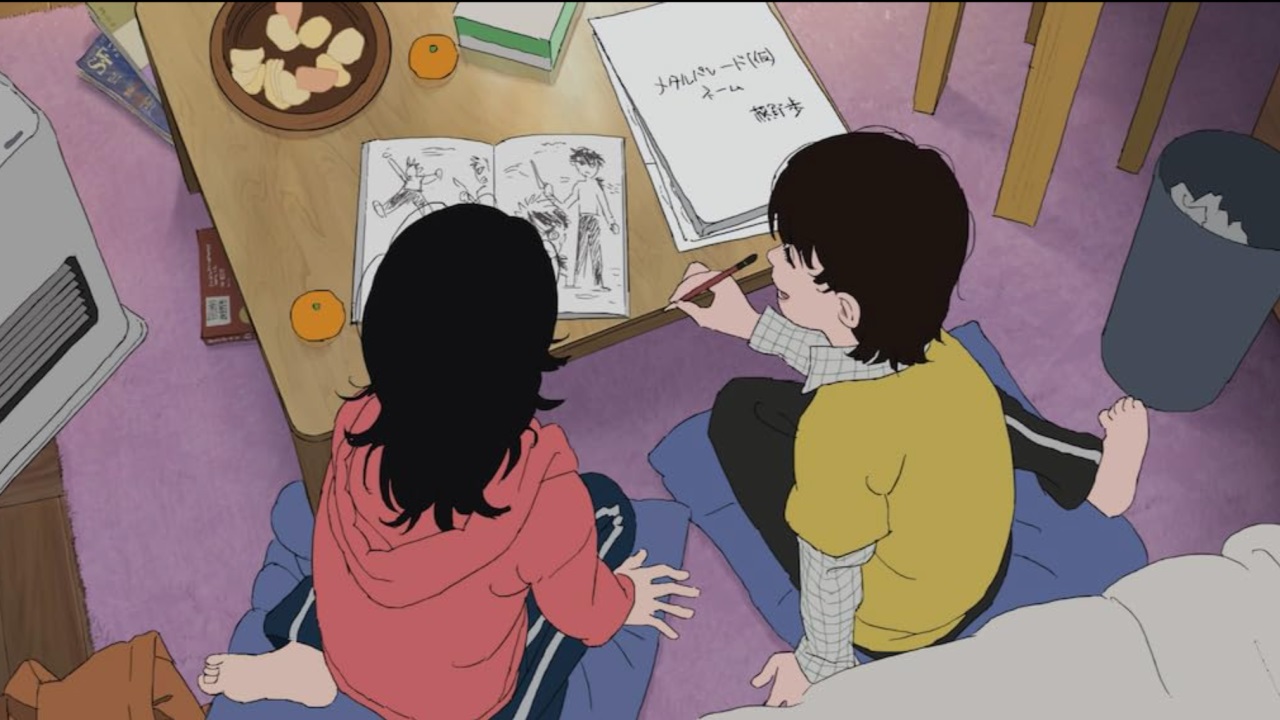
When Fujino is sent to deliver Kyomoto’s diploma, their shared love for manga becomes the foundation for an unlikely friendship. From this point, Look Back evolves into a tender exploration of collaboration and connection, as the two girls grow closer through their shared obsession with creating art. Kyomoto finds herself slowly stepping out of her reclusive shell, while Fujino rediscovers the joy of making art not for fame or recognition, but for the pure love of the craft.
The brilliance of Look Back lies in how it communicates so much with so little. Oshiyama’s direction leans heavily on visual storytelling, letting montages and moments of silence speak volumes.
We see time passing as seasons change outside Fujino’s window, the sunlight streaming across her desk as she tirelessly hones her skills. When Kyomoto joins her, the room becomes a shared creative haven, their individual styles—Fujino’s bold and brash, Kyomoto’s delicate and introspective—mingling in an unspoken rhythm.
The animation is breathtaking, elevating Fujimoto’s original work to new heights. Studio Durian’s attention to detail is evident in every frame, from the soft lines that give the characters a naturalistic warmth to the richly textured environments that evoke both nostalgia and melancholy. Haruka Nakamura’s evocative score adds another layer, its bittersweet melodies underscoring the highs and lows of the characters’ journey. Together, these elements create a world that feels deeply lived-in, as if each pencil stroke and ray of sunlight carries its own weight of memory.
But just as Look Back invites you into this intimate, beautiful world, it takes a dramatic and devastating turn. A sudden tragedy shatters the fragile equilibrium the girls have built, plunging the narrative into darker, more emotionally fraught territory.
For some, this shift might feel jarring, almost too abrupt for the delicate pacing of the story’s first half. Yet, it’s also quintessentially Fujimoto—a stark reminder of life’s unpredictability and the fragility of the things we hold dear.
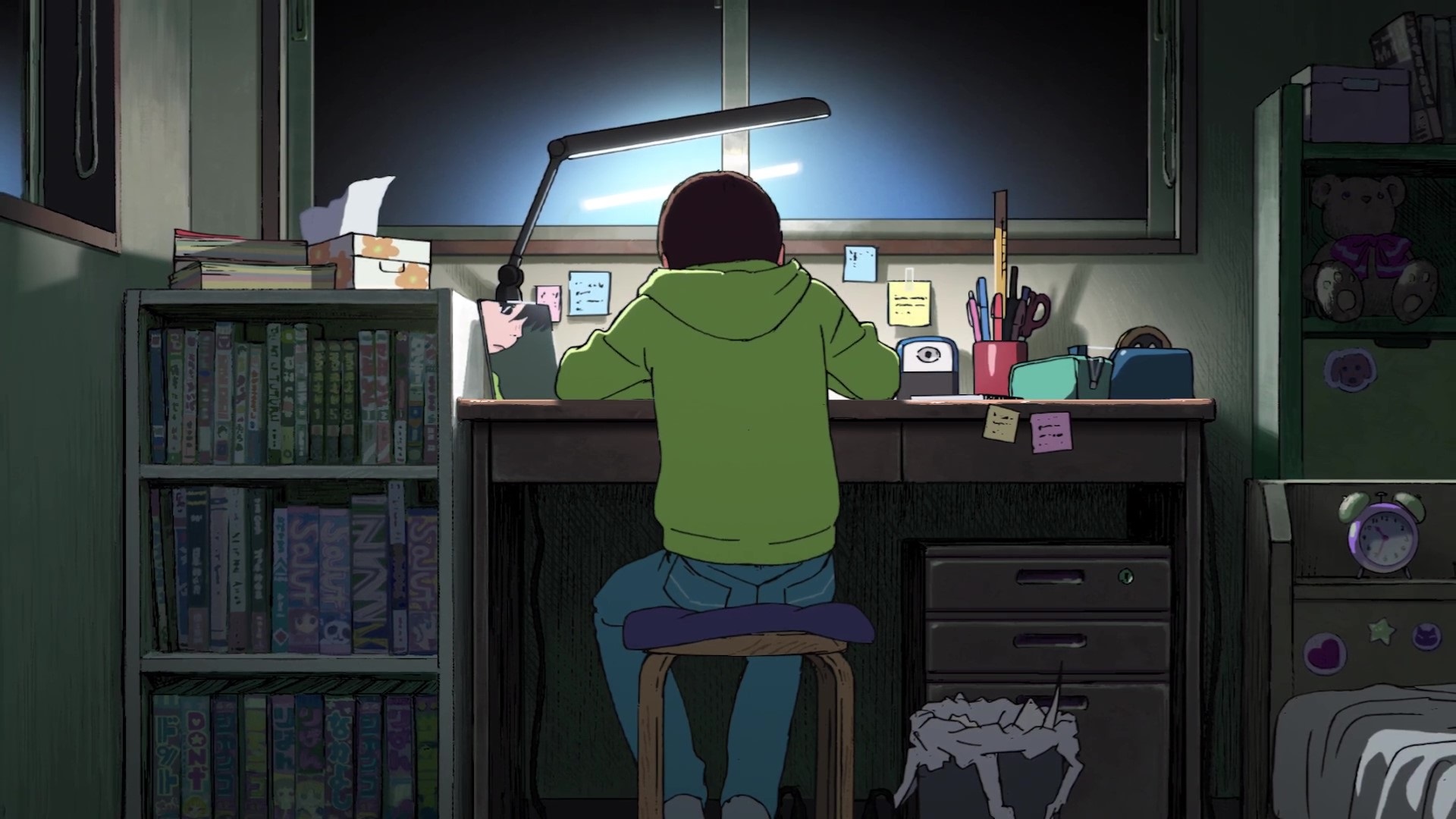
What makes this turn bearable, and even necessary, is how it reframes everything that came before. The tragedy doesn’t diminish the joy and connection Fujino and Kyomoto found in each other—it heightens it, turning their memories into something sacred. The recursive final moments of the film, looping through time and space, are a masterstroke of storytelling. They show us not only what was lost but also what was gained, leaving us with a bittersweet sense of closure that lingers long after the credits roll.
Look Back is a story about the act of creation—what drives it, what sustains it, and what it leaves behind. It portrays the artistic process with a rare honesty, acknowledging both the sacrifices it demands and the profound fulfillment it offers. Fujino and Kyomoto’s journey is not just about their work; it’s about the bond they form through their shared passion, a connection that transcends the pages they fill and the hours they spend together.
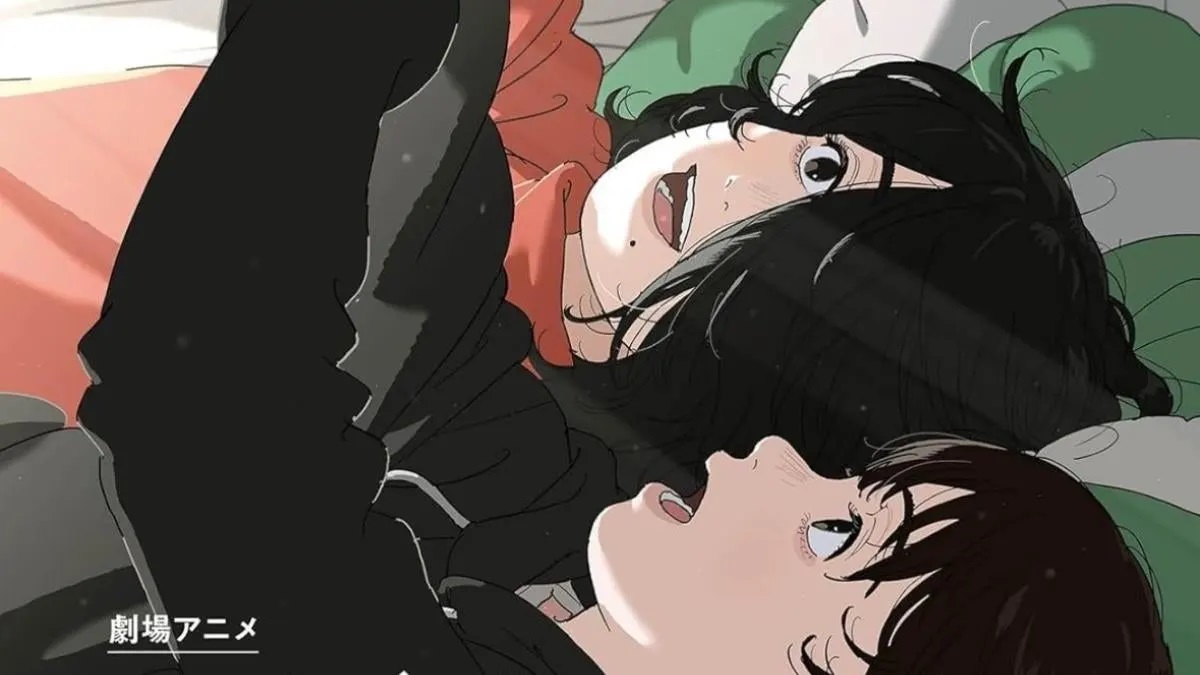
The film’s brevity, clocking in at just under an hour, is both its strength and its limitation. While the compact runtime ensures that every moment feels purposeful, it also leaves certain aspects of the story underexplored. The time skips, while effective in conveying the passage of years, occasionally feel rushed, leaving you longing for more time with the characters. Yet, this restraint is also what makes Look Back so powerful—it doesn’t overstay its welcome, instead trusting its audience to fill in the gaps and carry its themes forward.
As with many of Fujimoto’s works, Look Back walks a fine line between hope and despair. It doesn’t offer easy answers or tidy resolutions. Instead, it leaves you with questions—about the nature of art, the impact of loss, and the ways we connect with others through the things we create.
This ambiguity is what makes the film so resonant, inviting you to return to it again and again, each viewing revealing new layers of meaning.
The performances add another dimension to the film’s emotional depth. Yumi Kawai and Mizuki Yoshida bring a quiet vulnerability to Fujino and Kyomoto, their voices capturing the subtle shifts in their relationship as it evolves from rivalry to friendship. Their chemistry feels genuine, grounding the film’s more fantastical elements in a sense of real human connection.
It’s impossible to talk about Look Back without acknowledging its broader implications for the world of animation and storytelling. In an era where AI art threatens to commodify creativity, the film stands as a testament to the irreplaceable value of human-made art. Every frame, every line of dialogue, every note of music feels like the product of countless hours of labor and love—a reminder of what makes art so uniquely human.
More than a movie, Look Back offers a profound and unforgettable cinematic experience. It’s a story that lingers in your mind, not because of its plot twists or dramatic turns, but because of the emotions it evokes and the truths it uncovers.
It’s a film that asks you to look back at your own life, to remember the moments that shaped you, and to find meaning in the connections you’ve made along the way.
For those willing to embrace its quiet beauty and occasional heartbreak, Look Back offers something rare: a glimpse into the transformative power of art and the enduring strength of human connection. It’s a film that leaves you changed, its echoes reverberating long after the screen fades to black.




